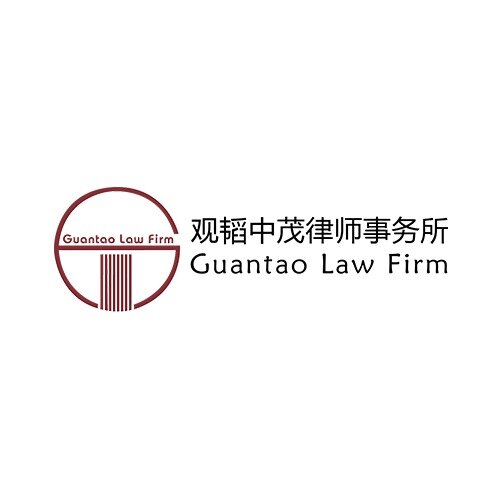Best Debt & Collection Lawyers in China
Share your needs with us, get contacted by law firms.
Free. Takes 2 min.
Or refine your search by selecting a city:
List of the best lawyers in China
About Debt & Collection Law in China
Debt and collection laws in China are formulated to regulate the financial obligations between creditors and debtors, ensuring a balance between the enforcement of contracts and the protection of debtor rights. China's legal framework for debt collection is primarily governed by the "Contract Law of the People’s Republic of China" and the "Civil Procedure Law." These laws dictate how debts are to be collected, the process for dispute resolution, and the enforcement of creditor rights, always within the boundaries of preserving the debtor's dignity and legal rights. As the economy becomes increasingly complex, the importance of understanding these laws has grown, especially for businesses and individuals engaged in financial transactions.
Why You May Need a Lawyer
Legal assistance in debt and collection matters can be crucial for several reasons:
- Debt Disputes: Determining the legitimacy and validity of a debt claim can require legal analysis and representation.
- Negotiations: Lawyers can help negotiate repayment terms or settlements, often achieving more favorable outcomes than individuals might alone.
- Contract Drafting and Review: Drafting or reviewing contracts to ensure they are binding and enforceable is a key legal service to prevent future disputes.
- Enforcement of Judgments: Legal expertise is needed to enforce court judgments, especially in navigating the complexities of Chinese legal procedures.
- Bankruptcy Proceedings: Engaging with the legal process in cases of bankruptcy to protect creditor rights or to manage debt is another common reason for seeking legal assistance.
Local Laws Overview
Understanding the key aspects of local laws related to debt and collection in China is essential for efficiently managing legal and financial matters.
- Contractual Obligations: The "Contract Law of China" stipulates that debt obligations arise from legally binding agreements, necessitating that contracts are precise and comprehensive.
- Statute of Limitations: Typically, Chinese law provides a statute of limitations of two to three years for initiating legal proceedings related to debt collection, depending on the specifics of the case.
- Collection Practices: Aggressive and unlawful collection practices are prohibited, and violations can result in penalties.
- Documentary Evidence: Written contracts and documentary evidence hold substantial weight in debt-related court cases in China.
- Mediation and Arbitration: Chinese law heavily promotes mediation and arbitration as primary dispute resolution mechanisms before litigation.
Frequently Asked Questions
1. What constitutes a legally binding debt in China?
A legally binding debt is established through a valid contract that meets the requirements set out in the Contract Law of China, including mutual consent, a lawful object, and the capacity of the parties involved.
2. How can I legally collect a debt in China?
The first step is often to negotiate directly or through a lawyer. Should this fail, arbitration or litigation can be pursued depending on the contractual terms.
3. Can I report a delinquent debtor to credit agencies?
Yes, creditors can report defaulting debtors to the national credit reporting systems, affecting the debtor's credit standing and future borrowing capabilities.
4. What is the role of arbitration in debt collection?
Arbitration serves as a private dispute resolution process where an arbitrator’s decision can be legally enforced, making it a favored method for resolving debt disputes swiftly and confidentially.
5. Is debt forgiveness possible in China?
Debt forgiveness can occur, but it typically requires either a mutual agreement or court intervention, taking into account the circumstances of the parties involved.
6. How are debtor harassment cases handled?
Harassment by creditors is not tolerated under Chinese law. Victims can report such behavior to relevant authorities, and perpetrators may face legal repercussions.
7. What documents are essential for debt recovery?
Important documents include the original contract, any proof of communications, receipts, and proof of overdue payment. High-quality documentation improves the chance of favorable outcomes in disputes.
8. Can a lawyer help reduce my debt?
Lawyers can assist in renegotiating terms with creditors, potentially reducing the principal owed, lowering interest rates, or extending payment deadlines under certain conditions.
9. How long does the debt recovery process usually take?
The timeframe can vary widely depending on the complexity of the case, ranging from several months for simpler cases to a few years for protracted litigations.
10. Are there any consumer protections against unfair debt collection practices?
Yes, consumers are protected under various laws that prohibit misleading claims, harassment, and unfair collection practices by creditors.
Additional Resources
For those seeking additional information or assistance, the following resources may prove invaluable:
- Ministry of Justice of the People's Republic of China: Offers comprehensive legal resources and services.
- China Banking and Insurance Regulatory Commission: Supervises credit and lending practices.
- Local Legal Aid Centers: Provide access to free or low-cost legal services for eligible individuals.
- China International Economic and Trade Arbitration Commission (CIETAC): Manages arbitration matters for disputes involving commercial debt.
Next Steps
If you require legal assistance in the area of debt and collection, consider taking the following steps:
- Consultation: Seek an initial consultation with a lawyer specializing in debt collection to evaluate your situation.
- Documentation Gathering: Collect all relevant documents pertaining to your debt or collection matters for review by a legal expert.
- Engagement: Engage a reputable lawyer or law firm with experience in Chinese debt law to represent your interests.
- Mediation and Settlement: Explore options for mediation or settlement, particularly for less complex disputes.
- Pursue Legal Action: If other avenues fail, be prepared to pursue legal action or arbitration as appropriate.
Taking these steps ensures that your debt and collection matters are handled professionally and legally.
Lawzana helps you find the best lawyers and law firms in China through a curated and pre-screened list of qualified legal professionals. Our platform offers rankings and detailed profiles of attorneys and law firms, allowing you to compare based on practice areas, including Debt & Collection, experience, and client feedback.
Each profile includes a description of the firm's areas of practice, client reviews, team members and partners, year of establishment, spoken languages, office locations, contact information, social media presence, and any published articles or resources. Most firms on our platform speak English and are experienced in both local and international legal matters.
Get a quote from top-rated law firms in China — quickly, securely, and without unnecessary hassle.
Disclaimer:
The information provided on this page is for general informational purposes only and does not constitute legal advice. While we strive to ensure the accuracy and relevance of the content, legal information may change over time, and interpretations of the law can vary. You should always consult with a qualified legal professional for advice specific to your situation.
We disclaim all liability for actions taken or not taken based on the content of this page. If you believe any information is incorrect or outdated, please contact us, and we will review and update it where appropriate.
Browse debt & collection law firms by city in China
Refine your search by selecting a city.















